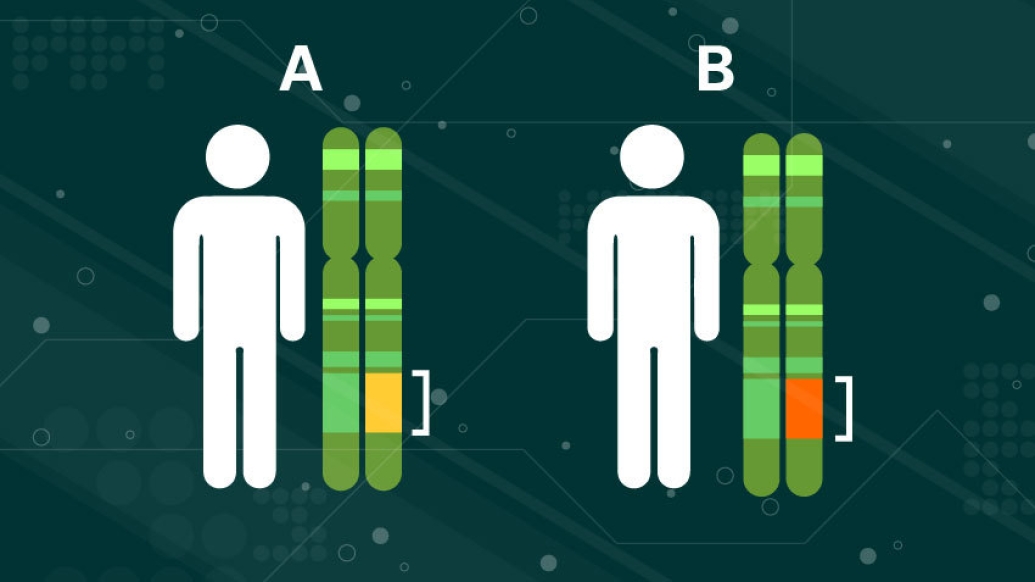An open access, online repository accelerates advancements in cancer prevention and prediction.
2:56 PM
Author |

An open-access, online repository, called Cancer PRSWeb, provides polygenic risk scores for 35 cancer traits to accelerate advancements in cancer prevention and prediction.
By distilling information from hundreds of data sources, including published genome-wide association studies, or GWAS, and meta-analyses, the University of Michigan Precision Health researchers generated polygenic risk scores for 35 common types of cancer. They then evaluated the scores using electronic health record data from the Michigan Genomics Initiative and the UK Biobank. The result is a free, online repository accessible to researchers everywhere, and it's the subject of a recent paper in the American Journal of Human Genetics.
"We built Cancer PRSweb to offer convenient and open access to PRS that might provide valuable directions for the translation of PRS from basic research toward potential clinical utility and accelerate scientific discoveries," says lead author Lars Fritsche, Ph.D., an associate research scientist in biostatistics in the School of Public Health and the recipient of a 2018 Precision Health Investigators Award for this research. "We hope this platform will be useful to the cancer research community worldwide."
Generating polygenic risk scores is a complicated, time-consuming process. While some diseases, such as cystic fibrosis, can be traced to variants on a single gene, others, such as diabetes and cancer, result from a number of genetic variants in combination with how one's environment and lifestyle influence gene expression. To more accurately determine who is at high risk of developing these polygenic diseases, researchers must look at not just one genetic variant, but a number of genetic variants in concert.
MORE FROM THE LAB: Subscribe to our weekly newsletter
Development and selection of polygenic risk scores is challenging for researchers due to limited access to full summary statistics of genome-wide association studies, the lack of directly transferable polygenic risk score constructs, and the analytic expertise needed to discern between different polygenic risk scores to choose the most appropriate one for a given study. Cancer PRSWeb attempts to bridge that gap.
With access to Cancer PRSWeb, researchers save time and money, which expedites scientific and clinical discoveries.
"The generation and exploration of PRS can be very time consuming and computationally expensive," says author Bhramar Mukherjee, Ph.D., chair of biostatistics, associate workgroup director for cohort development at Precision Health, and associate director for Quantitative Data Sciences at the Rogel Cancer Center. "For cancer traits in PRSweb, we have already done the hard work and offer the ability to rank polygenic risk scores based on various performance metrics that indicate their suitabilities for different purposes. For example, there might be one polygenic risk scores that works better for prediction accuracy, while another one has an edge for risk stratification purposes. These distinctions, combined with the transparent construction, advances the push toward clinical utilization of polygenic risk scores."
Clinically useful, because polygenic risk scores applied to the medical phenome "offer the opportunity to uncover secondary trait associations that share a genetic component with the primary trait of interest," says Fritsche, which in turn could "uncover key pre-symptomatic diagnoses or biomarkers that themselves could be used as predictors."
A 2018 Precision Health Investigators Award helped propel this important research.
"It was essential to help seed our team effort, which required different skill sets in human genetics, statistics, computation, and visualization," says Fritsche. "Precision Health events, furthermore, allowed us to discuss our platform with a growing multidisciplinary community and provided vital feedback for a possible integration of polygenic risk scores into clinical applications."
A supplement to the cancer center core grant from the National Cancer Institute also enabled this research.
With an initial repository for cancer polygenic risk scores set up, the research team is applying lessons learned to explore other areas, such as mental health and endocrine/metabolic disorders. "Our ultimate goal," says Mukherjee, "is the creation of PRS for every complex trait, with a decent proportion of its heritability explained through common risk variants."
Also planned are polygenic risk scores for common risk factors for chronic diseases, smoking, obesity, physical activity, and some blood and serum biomarkers.
Like Podcasts? Add the Michigan Medicine News Break on iTunes or anywhere you listen to podcasts.

Explore a variety of healthcare news & stories by visiting the Health Lab home page for more articles.

Department of Communication at Michigan Medicine
Want top health & research news weekly? Sign up for Health Lab’s newsletters today!





